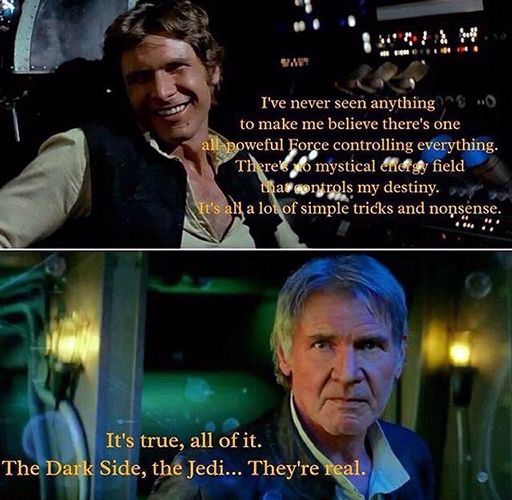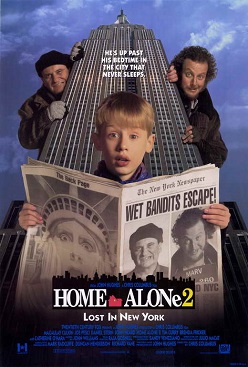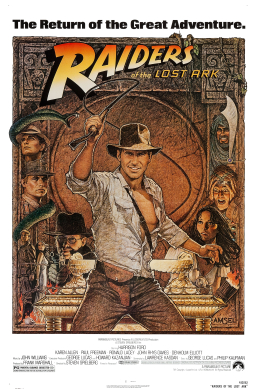Star Wars: The Force Awakens Review (finally)

The Star Wars Trek
Star Wars' Expanded Universe (EU) has been a crucial part of its narrative since its inception, even before the release of the sequel The Empire Strikes Back three years later. This expansion was marked by influential books like Alan Dean Foster's Splinter of the Mind's Eye and a few spinoff stories featuring the beloved character Han Solo. However, when Disney acquired Lucasfilm, they "rebooted" the EU, invalidating all narrative elements without the original and prequel trilogies; the primary Episodes would be rebranded as the "Skywalker Saga." Three years later, Disney released the first canon entry of the sequel trilogy, Star Wars: The Force Awakens, a collaboration between Lucasfilm and director J.J. Abrams' Bad Robot production company.
Set three decades after Return of the Jedi, the movie introduces a new generation of characters. It revolves around the disappearance of Luke Skywalker after one of his rogue pupils annihilated his fledgling Jedi Order. His twin sister, General Leia Organa, leads the Resistance in defending the New Republic against the First Order, formed from the remnants of the fragmented Galactic Empire. On Jakku, a desert planet like Tatooine, Resistance pilot Poe Dameron discovers a star map of Luke's location. This discovery leads to a chain of events, including the kidnapping and torture of Dameron by Kylo Ren, leader of the Dark Side-following Knights of Ren and successor to Darth Vader. A pivotal character in the narrative is disgruntled stormtrooper FN-2187, renamed Finn, who saves Dameron and escapes via a TIE fighter.
Kylo shares Vader's dark sense of humor.
They crash-land on Jakku, escaping on the Millennium Falcon after the First Order begins an airstrike. The legendary vessel's previous owners, Han Solo and his imposing furry friend Chewbacca, discover and board it, dealing with various gangs with which Han had conducted business. Afterward, the film cuts to political maneuvering at the First Order's Starkiller Base, a planet converted into a superweapon (essentially a third Death Star, which the movie acknowledges, albeit capable of destroying entire star systems). Supreme Leader Snoke, who looks like a giant disfigured cross between Lord Voldemort and Gollum (with Andy Serkis ironically voicing the emperor stand-in), gives General Hux the OK to execute the weapon while questioning his apprentice Kylo's capabilities as his enforcer (his reasons unfortunately spoiled to me by some jerkwad online before I saw the film in theaters).
The star map leading to Luke, harbored by the diminutive droid BB-8, is discovered to be incomplete. They travel to the planet Takodana to meet the cantina owner Maz Kanata, who is around a millennium old and offers the Resistance help. Visions of Rey's past and the Jedi Order are revealed when she touches an old lightsaber below the cantina, which she allows Finn to keep. After a riveting speech by General Hux on Starkiller Base, the film's dramatic high point, the superweapon's fury is unleashed on the Hosnian System, home to the New Republic, leaving the Resistance by itself to face the First Order.
He could very easily be talking about many modern democracies. Try watching it in German, as well.
The First Order assaults Takodana in search of BB-8, with Kylo also capturing Rey and interrogating her at Starkiller Base. As the superweapon prepares to fire again, the Resistance launches a counterattack, with Han, Chewbacca, and Finn infiltrating the base. Kylo is confronted with a vile but heart-wrenching climax, after which the Resistance attempts to destroy Starkiller Base from within, with Rey and Finn confronting Kylo. The film concludes with a cliffhanger showing an aged Luke that ties into the following episode, The Last Jedi. The emotional impact of these events leaves a profound and lasting impression on the audience.
Probably the film's comedic high point, ironically a bit before the emotional climax.
I didn't have many expectations when I watched the movie in theaters, initially released in the previous decade. The trailers did an excellent job masking critical points of the narrative (but again, significant twists had been spoiled for me), and the focus on Luke's disappearance at least surprised me. At first, it felt like a glorified remake of A New Hope (which it often and admittedly is). However, upon rewatching, I found it superior and better written, with the dialogue being nothing short of intelligent, including frequent witty banter, plenty of callbacks and homages to the original trilogy, and one reference to the prequel trilogy ("Perhaps Leader Snoke should consider using a clone army").
The Star Wars franchise has always excelled in its sociopolitical commentary and themes, and The Force Awakens is no exception. Its chief motif is history repeating itself, freedom and democracy, and their perpetual struggle against tyranny, constantly being in flux. The characters, new and old, excel as always, with many, like Kylo, being very relatable and those like Han having had excellent growth between the original and sequel trilogies. While the sudden invalidation of the original Expanded Universe irritated many, the new canon has been just as enjoyable in many aspects.

Han probably had the best character growth in between the original and sequel trilogies.
However, The Force Awakens bequeaths many of the same issues as its predecessors, chief among them the sheer volume of events that occur offscreen, explained only in the canon books and television series, like C-3PO's red left arm and the existence of the Knights of Ren themselves. Thus, the sudden dump of new characters, settings, and situations during the film's initial release was somewhat problematic, with many books and series slightly filling the narrative gaps since then. There are also weird expressions like "moof-milker" (akin to The Empire Strikes Back's "nerf herder").
Regardless, I enjoyed Episode VII upon my first rewatch, chiefly because it evoked many emotions from me, good and bad, and often hit home hard. I know its reputation has somewhat soured since its initial release, but I felt quite the opposite and think its themes could easily apply to today's world. The characters and writing are superb, with the music and visual effects excelling as they always have throughout the Star Wars franchise. However, it inherits many problems from its predecessors, like the endless events occurring without the films. Even so, I was blown away by the movie when I rewatched it and will happily rewatch the following Episodes and the trilogies before.
The Good
- Brought Star Wars to a new generation of fans.
- Excellent characters.
- Superb sociopolitical themes.
- Heart-rending climax.
- John Williams rocks as always.
- Beautiful effects and battles.
The Bad
- Basically a glorified remake of A New Hope.
- Some questionable plot elements.
- WTF is a "moof-milker?"
- Way too many things that occur offscreen.
The Bottom Line
A great start to the sequel trilogy.





